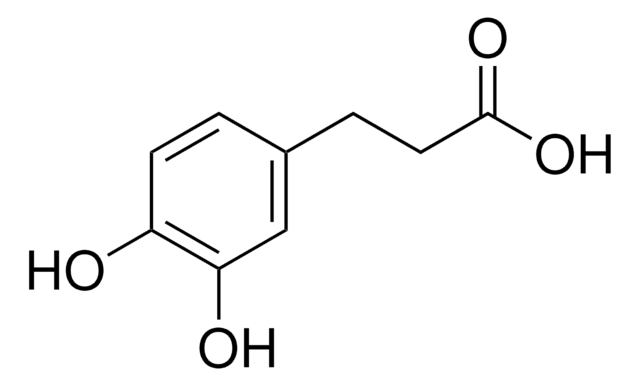D9753
DL-3,4-Dihydroxyphenyl glycol
Synonym(s):
DL-α,β,3,4-Tetrahydroxyphenethyl alcohol, DL-β,3,4-Trihydroxyphenethyl alcohol
About This Item
Recommended Products
form
powder
Quality Level
storage temp.
−20°C
SMILES string
OCC(O)c1ccc(O)c(O)c1
InChI
1S/C8H10O4/c9-4-8(12)5-1-2-6(10)7(11)3-5/h1-3,8-12H,4H2
InChI key
MTVWFVDWRVYDOR-UHFFFAOYSA-N
Looking for similar products? Visit Product Comparison Guide
1 of 4
This Item | 67261 | 30751 | 42078 |
|---|---|---|---|
| technique(s) HPLC: suitable, gas chromatography (GC): suitable | technique(s) HPLC: suitable, gas chromatography (GC): suitable | technique(s) HPLC: suitable, gas chromatography (GC): suitable | technique(s) HPLC: suitable, gas chromatography (GC): suitable |
| format neat | format neat | format neat | format neat |
| Quality Level 100 | Quality Level 300 | Quality Level 100 | Quality Level 100 |
| grade analytical standard | grade certified reference material, TraceCERT® | grade analytical standard | grade analytical standard |
| assay ≥98.0% (HPLC) | assay - | assay - | assay ≥95.0% (HPLC) |
Signal Word
Warning
Hazard Statements
Precautionary Statements
Hazard Classifications
Eye Irrit. 2
Storage Class Code
11 - Combustible Solids
WGK
WGK 3
Personal Protective Equipment
Choose from one of the most recent versions:
Already Own This Product?
Find documentation for the products that you have recently purchased in the Document Library.
Customers Also Viewed
Our team of scientists has experience in all areas of research including Life Science, Material Science, Chemical Synthesis, Chromatography, Analytical and many others.
Contact Technical Service


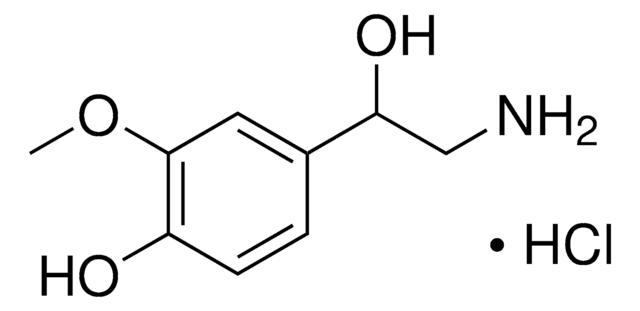



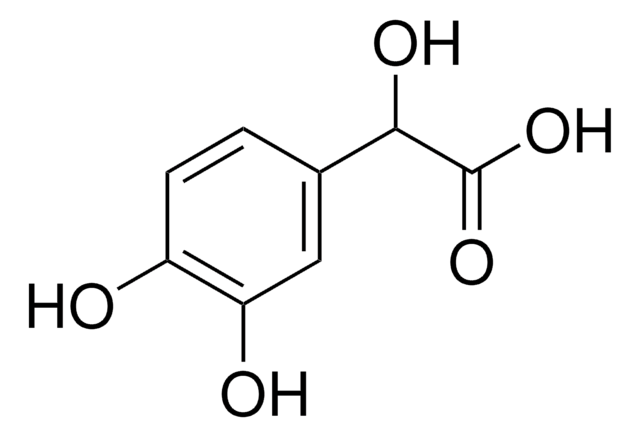
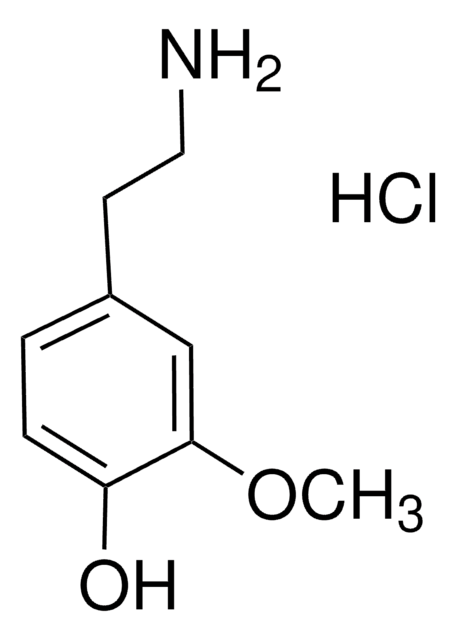
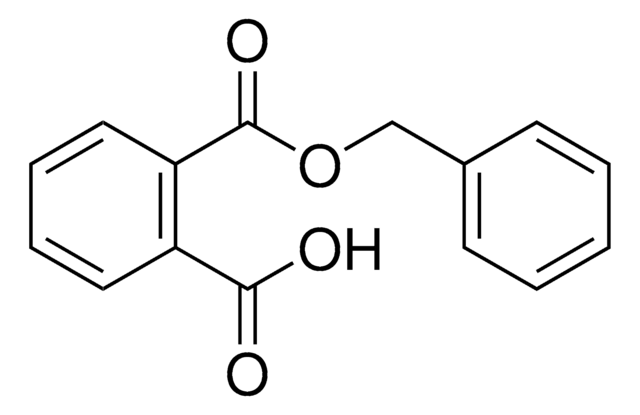
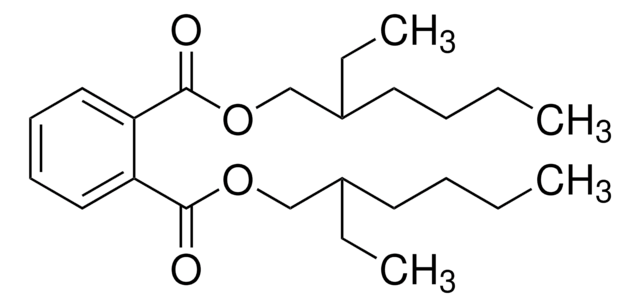
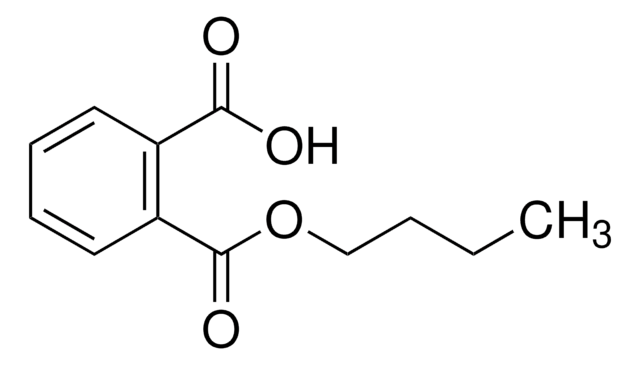
![mono-[(2RS)-2-Ethyl-5-oxohexyl] phthalate analytical standard](/deepweb/assets/sigmaaldrich/product/structures/380/975/47f8fcbc-594c-4f9c-84df-43685552cd06/640/47f8fcbc-594c-4f9c-84df-43685552cd06.png)

